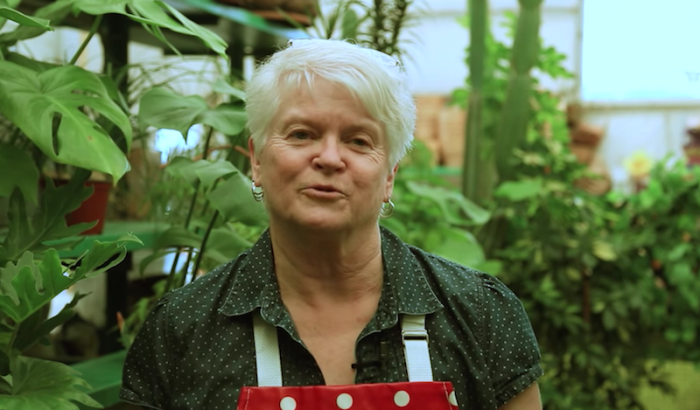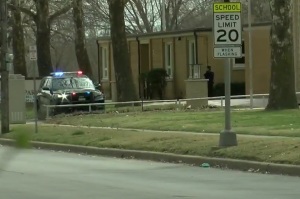Christian florist who refused to work gay wedding loses again in Washington court
ADF says court 'narrowly' interpreted 2018 Supreme Court decision

The Washington Supreme Court has again ruled against Christian grandma florist Barronelle Stutzman who faces the risk of crippling fines for refusing to create floral arrangements for a same-sex wedding.
The state’s highest court unanimously upheld its 2017 decision, leaving Stutzman on the hook to pay thousands in legal fees for violating the state’s non-discrimination law that protects on the basis of sexual orientation.
The U.S. Supreme Court vacated the Washington court’s 2017 decision last June and sent the case back to the court for further consideration in light of the court’s 7-2 ruling in favor of Colorado Christian baker Jack Phillips. Phillips was accused of violating Colorado’s discrimination law for refusing to bake a cake for a same-sex wedding.
The Supreme Court asked the Washington high court to consider whether or not there was any animus against the florist’s religious beliefs when the lower courts ruled against Stutzman previously.
The court found in Phillips’ case that the Colorado government did display religious hostility to the baker’s Christians beliefs on marriage and sexuality.
The Washington Supreme Court stated in its opinion Thursday that neither the state supreme court or the lower state court in Benton County acted with religious animus.
The court again asserted that Stutzman’s refusal in 2013 to provide flower arrangements for the wedding of Rob Ingersoll and Curt Freed to be a violation of state law.
“They did not act with religious animus when they ruled that such discrimination is not privileged or excused by the United States Constitution or the Washington Constitution,” the ruling reads.
In its conclusion, the court stressed that “[d]iscrimination based on same-sex marriage constitutes discrimination on the basis of sexual orientation.”
“We therefore hold that the conduct for which Stutzman was cited and fined in this case — refusing her commercially marketed wedding floral services to Ingersoll and Freed because theirs would be a same-sex wedding — constitutes sexual orientation discrimination under the [Washington Law Against Discrimination],” the ruling reads.
The Alliance Defending Freedom, a conservative legal group that represents the florist, responded to the ruling by assuring that the case will again be appealed to the nation’s highest court.
The religious freedom nonprofit argues that the Washington Supreme Court read the Supreme Court’s decision in Masterpiece Cakeshop as “narrowly as possible” by suggesting that the U.S. Supreme Court’s condemnation of government hostility toward religion applies only to adjudicatory bodies and not the executive branch of the government.
ADF argues that the U.S. Supreme Court ruling in Masterpiece says the “exact opposite.”
Stutzman has argued that state Attorney General Bob Ferguson showed hostility toward her religious beliefs. ADF argues that Ferguson’s hostility “is what caused the U.S. Supreme Court to send the case back in the first place.”
“Barronelle serves all customers; she simply declines to celebrate or participate in sacred events that violate her deeply held beliefs,” ADF Vice President of Appellate Advocacy John Bursch said in a statement. “Despite that, the state of Washington has been openly hostile toward Barronelle’s religious beliefs about marriage, and now the Washington Supreme Court has given the state a pass. We look forward to taking Barronelle’s case back to the U.S. Supreme Court.”
ADF contends that the Washington Supreme Court ignored the precedent set by the Supreme court in the case of National Institute of Family and Life Advocates v. Becerra, which held that the state of California violated the First Amendment by requiring pro-life pregnancy centers to inform pregnant mothers about state-assisted abortions.
ADF also cites Janus v. American Federation of State, County, and Municipal Employees, Council 31, a 2018 Supreme Court ruling stating that it is unconstitutional for public employees who are not union members to be forced to pay union dues.
Stutzman is the owner of Arlene's Flowers in Richland. After refusing to provide the floral arrangements for Ingersol and Freed’s wedding, she was sued by the couple, who were represented by the American Civil Liberties Union.
In 2015, the Benton County Superior Court fined the florist $1,001 and held her liable to pay thousands of dollars in legal fees that will be incurred by the couple.
“We are pleased that the Washington State Supreme Court recognized that the Masterpiece decision does not give people a license to use religion to discriminate,” Michele Storms, executive director of the ACLU of Washington, said in a statement. “Religion is a fundamental right, but businesses open to the public must be open to all.”
Stutzman has maintained that she sold flowers to Ingersoll for almost a decade before she was asked to provide the flowers for his wedding.
“The state not only went after Barronelle’s business but also sued her in her personal capacity — putting all her personal assets, including her life savings, at risk,” ADF Senior Vice President of U.S. Legal Division Kristen Waggoner, who has argued on Stutzman's behalf, said in a statement.
Waggoner is also the lawyer who represented Phillips before the Supreme Court last year.
“Rather than respecting her right to peacefully live out her faith, the government targeted her because of her beliefs,” Waggoner said. “Meanwhile, the state has applied its laws unevenly, choosing not to sue a coffeehouse owner who profanely berated and expelled Christian customers, openly mocking their faith in the process. In Masterpiece, the U.S. Supreme Court made it clear that even a hint of hostility toward people of faith has no place in our society.”
Follow Samuel Smith on Twitter: @IamSamSmith
or Facebook: SamuelSmithCP





























